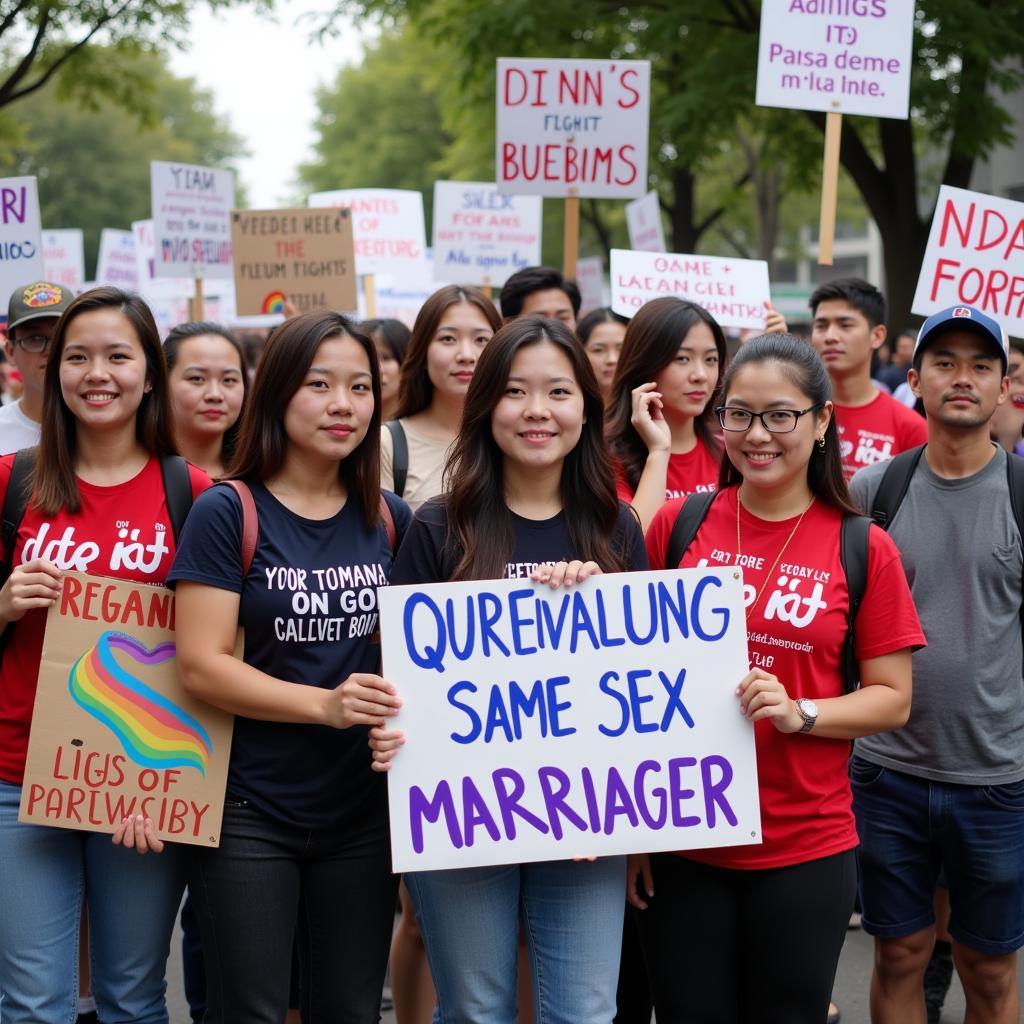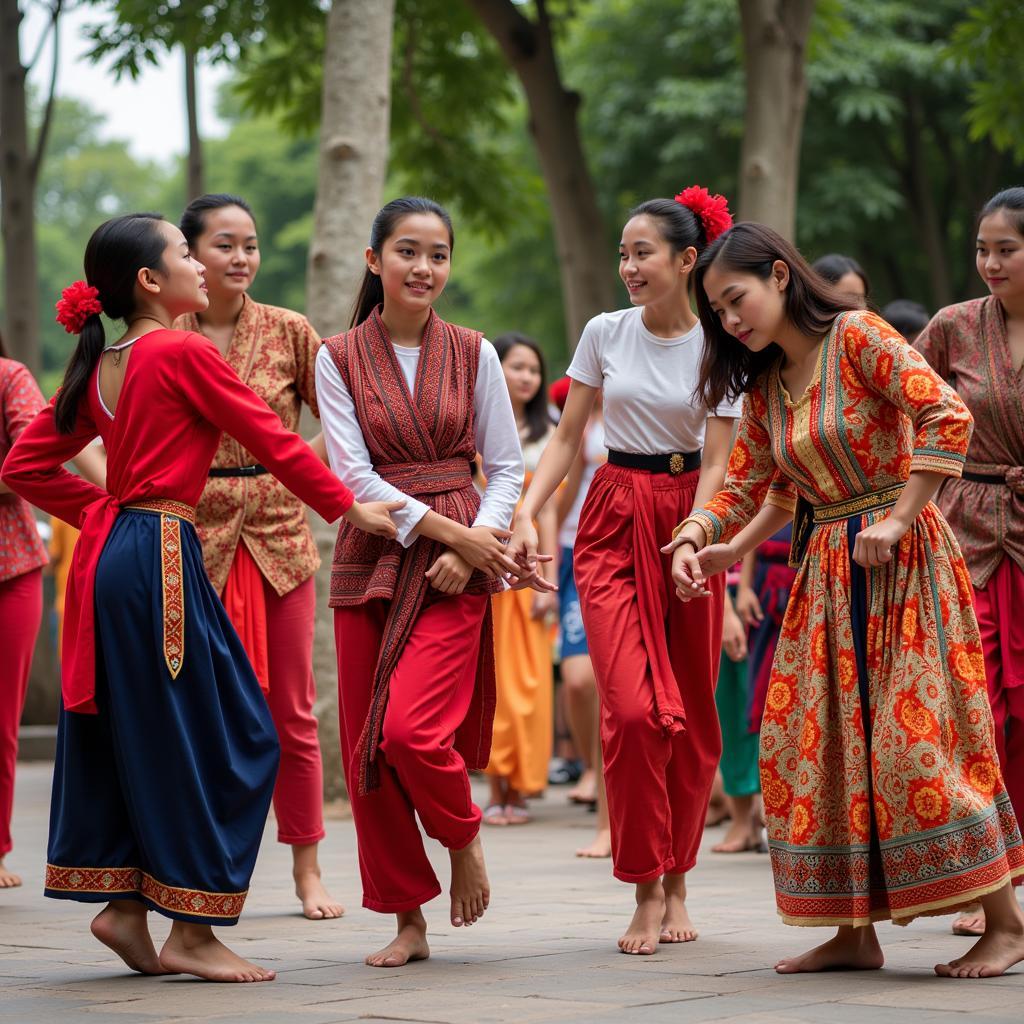Currently, no ASEAN countries legally recognize same-sex marriage. While societal views on LGBTQ+ rights are evolving across the region, legal frameworks haven’t kept pace. This article explores the current legal landscape regarding same-sex marriage in ASEAN, examines social attitudes, and discusses potential future developments.
The Legal Status of Same-Sex Marriage in ASEAN
The legal status of same-sex marriage in ASEAN remains uniformly unrecognized. While some nations are beginning to discuss the possibility of legalizing civil partnerships or other forms of recognition for same-sex couples, marriage itself remains defined as a union between a man and a woman in all member states. This lack of legal recognition can create significant challenges for same-sex couples in areas such as inheritance, healthcare, and immigration. It’s important for those considering relocating to or within the ASEAN region to be aware of these legal limitations.
Understanding the specific laws and regulations in each country is crucial, as penalties for same-sex relationships vary significantly across the region. Some nations have laws that criminalize same-sex relations, while others have more tolerant, albeit still restrictive, legal frameworks. This legal diversity within ASEAN reflects the complex interplay of cultural, religious, and political influences in the region.
Societal Attitudes Towards Same-Sex Marriage in ASEAN
While the legal landscape remains largely unchanged, societal attitudes towards same-sex relationships are gradually shifting in some parts of ASEAN. Increasingly, younger generations are demonstrating greater acceptance and understanding of LGBTQ+ issues. This evolving social landscape is leading to increased visibility and advocacy for LGBTQ+ rights, including the right to marry. However, traditional values and religious beliefs continue to play a significant role in shaping public opinion, particularly in more conservative nations.
 LGBTQ+ rights advocacy in ASEAN
LGBTQ+ rights advocacy in ASEAN
This societal tension between tradition and progress is a key element in the ongoing debate surrounding same-sex marriage in the region. The increasing visibility of LGBTQ+ individuals and communities is fostering dialogue and challenging existing norms, although significant obstacles remain.
Future Prospects for Same-Sex Marriage in ASEAN
Predicting the future of same-sex marriage in ASEAN is complex. While no countries currently allow it, the increasing global trend toward legalization, coupled with evolving societal views within the region, suggests that change may be on the horizon. Several ASEAN nations are beginning to consider legal reforms that would grant some rights to same-sex couples, although full marriage equality is still some way off.
What are the possible next steps for ASEAN countries considering same-sex marriage legalization?
Potential next steps could include the introduction of civil partnerships, which would provide same-sex couples with some legal recognition and protections. Another possibility is the decriminalization of same-sex relationships in countries where such laws still exist. These steps, while not equivalent to full marriage equality, would represent significant progress and could pave the way for further legal reforms in the future.
 Future of same-sex marriage in ASEAN
Future of same-sex marriage in ASEAN
“The path towards marriage equality in ASEAN is a long and complex one,” observes Dr. Anya Sharma, a sociologist specializing in Southeast Asian social dynamics. “However, the growing momentum of the global LGBTQ+ rights movement, combined with the changing demographics and social attitudes within the region, suggests that significant legal and societal shifts are possible in the coming decades.”
“It is essential to recognize the diversity of perspectives within ASEAN on this issue,” adds Dr. Sharma. “While some nations are more progressive, others remain deeply conservative. Respecting these cultural differences is crucial while simultaneously advocating for the fundamental human rights of all individuals, regardless of sexual orientation.”
Conclusion
While same-sex marriage is not currently legal in any ASEAN countries, the landscape of LGBTQ+ rights is dynamic and evolving. Societal attitudes are gradually shifting, and the possibility of future legal reforms remains open. Understanding the current legal situation, social context, and potential future developments related to same-sex marriage in ASEAN is essential for anyone interested in the region’s social and political landscape.
FAQs
- Is same-sex marriage legal anywhere in Southeast Asia? No.
- Are there any legal protections for same-sex couples in ASEAN? Limited protections exist in some countries, primarily in the form of anti-discrimination laws.
- What are the cultural attitudes towards LGBTQ+ individuals in ASEAN? Attitudes vary considerably across the region, from relative tolerance to strong disapproval.
- Are there any active LGBTQ+ rights organizations in ASEAN? Yes, numerous organizations are working to advance LGBTQ+ rights and equality.
- What are the penalties for same-sex relationships in ASEAN countries? Penalties vary widely, from fines to imprisonment.
- What are the prospects for future legalization of same-sex marriage in ASEAN? While uncertain, the possibility of future legal reform exists, driven by shifting social attitudes and global trends.
- Where can I find more information on LGBTQ+ rights in ASEAN? Numerous online resources and organizations provide information and support.
Suggested Further Reading
- LGBTQ+ Rights in Southeast Asia: A Comprehensive Overview
- The Evolving Legal Landscape of Same-Sex Relationships in ASEAN
Need support? Contact us 24/7: Phone: 0369020373, Email: aseanmediadirectory@gmail.com, Address: Thon Ngoc Lien, Hiep Hoa, Bac Giang, Vietnam.

